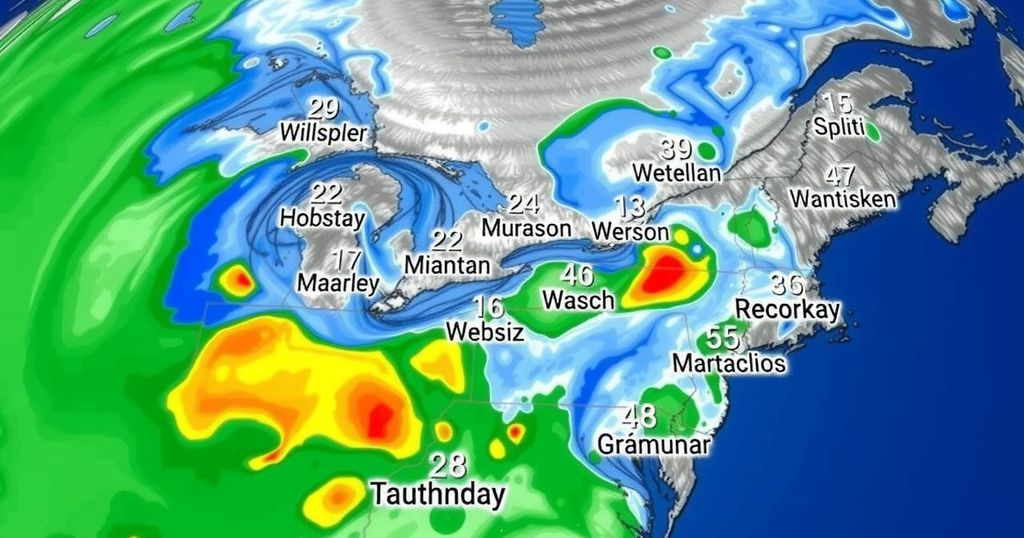Weather
ALTA, ARCTIC, ARCTIC CIRCLE, ARCTIC NORWAY, ARI, ARILD SUNDFJORD, ASIA, BARE, BARENTS, BARENTS OBSERVER, BARENTS SEA, CLIMATE, CLIMATE CHANGE, EUROPE, EUROPE/ASIA, EUROPEAN, EXTREME WEATHER, FINNISH LAPLAND, FRANCE, GLOBAL WARMING, HAMMERFEST, INDIA, KIRKENES, MURMANSK, NORTH, NORWAY, NORWEGIAN METEOROLOGICAL INSTITUTE, NORWEGIAN POLAR INSTITUTE, PARIS, RUSSIA, RUSSIAN ARCTIC, SINGAPORE, TROMSØ, WEATHER, YE, YEE
Daniel O'Connor
0 Comments
Record November Heat in the Arctic: A Warning Sign of Climate Change
A historic temperature of 11.6°C was recorded in Kirkenes, Norway in November 2024, disrupting winter tourism. Experts warn about climate change effects, including rising sea levels and species extinction. 2024 is projected to exceed the Paris Agreement’s 1.5-degree limit, raising concerns for Arctic ecosystems and global climate.
In November 2024, Kirkenes, located in Arctic Norway, recorded an unprecedented temperature of 11.6°C, surpassing the previous record by 2.8 degrees. Tourists visiting for winter activities expressed disappointment as snow had not arrived, with some activities such as snowmobile tours being canceled. The records of warm temperatures were not isolated to Kirkenes, with other Arctic locations like Tromsø and Alta also experiencing unusually high readings. Experts attribute these phenomena to climate change, warning of dire consequences such as rising sea levels and the potential extinction of native species such as polar bears. The Norwegian Meteorological Institute forecasts that 2024 may be the first year to exceed the 1.5-degree limit established by the Paris Agreement, reflecting profound environmental shifts.
The article addresses the significant impact of climate change on Arctic regions, spotlighting recent record temperatures in November 2024. The customary expectations of winter in these areas have been undermined by unexpected warmth, which has directly influenced tourism and local wildlife. Experts underline the connection between these temperature anomalies and broader environmental issues, indicating a concerning trend for the planet’s future.
The record warm temperatures recorded in the Arctic in November 2024 exemplify the alarming effects of climate change in polar regions. The disappointment of tourists expecting winter experiences highlights the immediate impacts on local economies. Experts warn that these changes are symptomatic of broader environmental threats, including biodiversity loss and increased natural disasters. Immediate action to mitigate these effects remains urgent as we approach critical climate thresholds.
Original Source: www.thebarentsobserver.com




Post Comment